Eeswaran
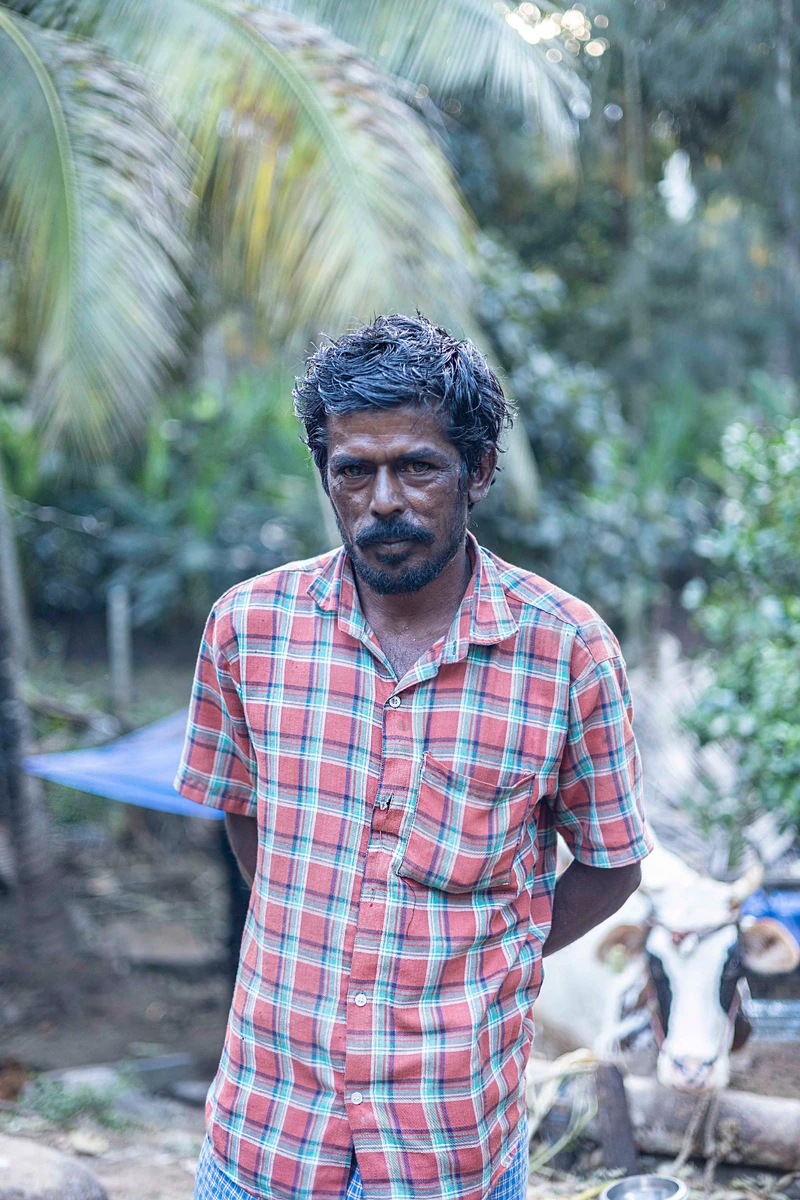
In 2022, Eswaran's cultivation was successful. He was able to sell tapioca at a reasonable price. He leased a new piece of land for this year's crop. However, there would be a shortage of water for irrigation in March and April, and the lease amount was lower than the previous year.
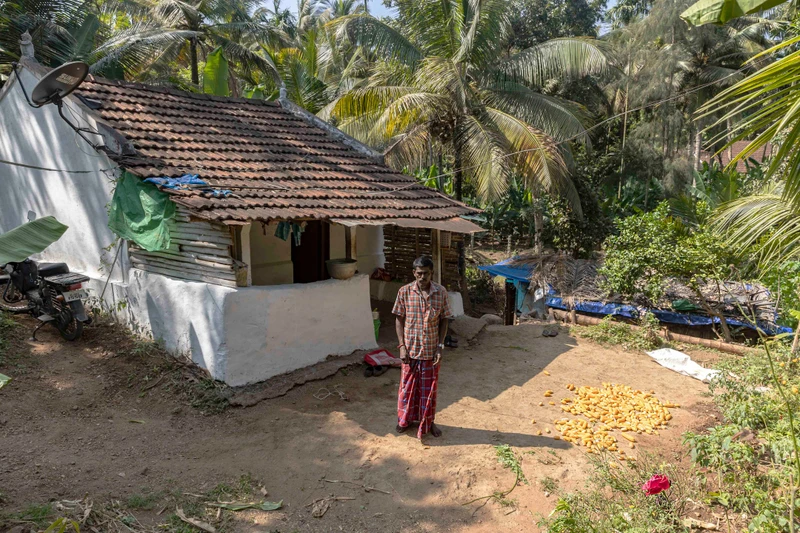
Eswaran's elder son, Jagath Kumar, completed his course in air conditioning mechanics but has not yet received his certificate. This was because he and other students from his village found the climate uncomfortable and realized the job wouldn't provide a sustainable income. He returned to the village and joined the family in farming, while some of his classmates became auto drivers.
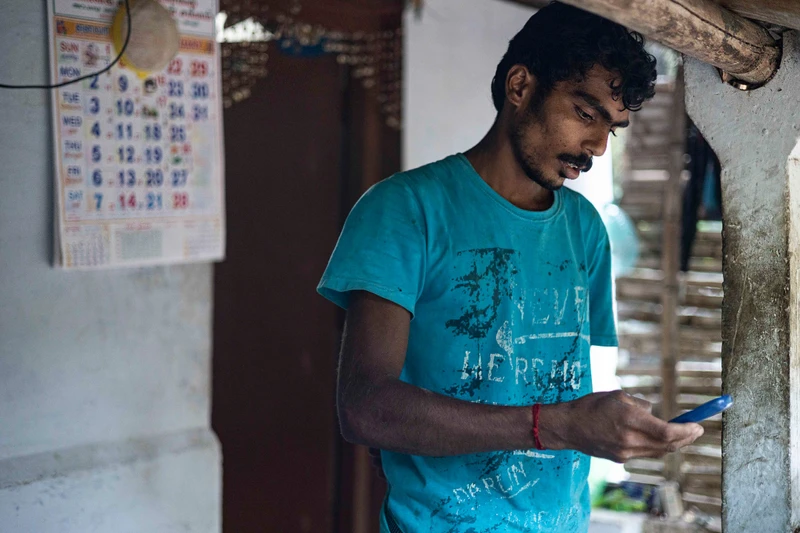
Eswaran's younger son, Jagadeesh, dropped out of school after completing plus two and is now also a farmer.
Eswaran and his family live in a small house by the side of the road (Govt land). He bought a small piece of land a few years ago, but the house is still under construction.
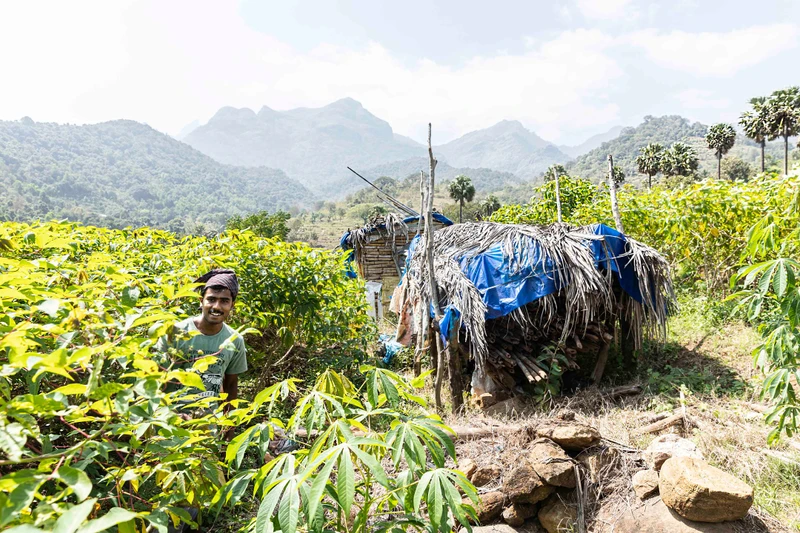
When asked if he received government support for housing, Eswaran replied, "Not yet..People who are close with political parties get that easily. I have tried many times before, but I'm not a supporter of any parties. I just want to take care of my family."
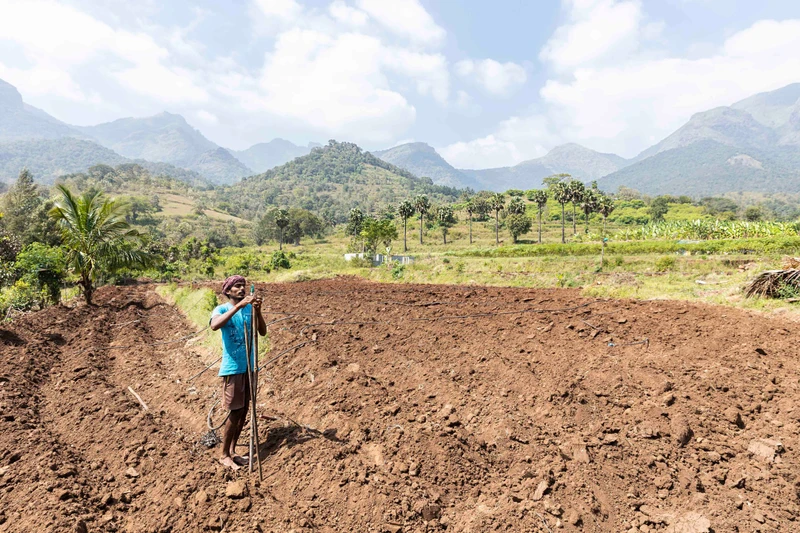
Eswaran's wife, Shivakami, declined to be photographed and said, "After being photographed several times, me and my family became this way."
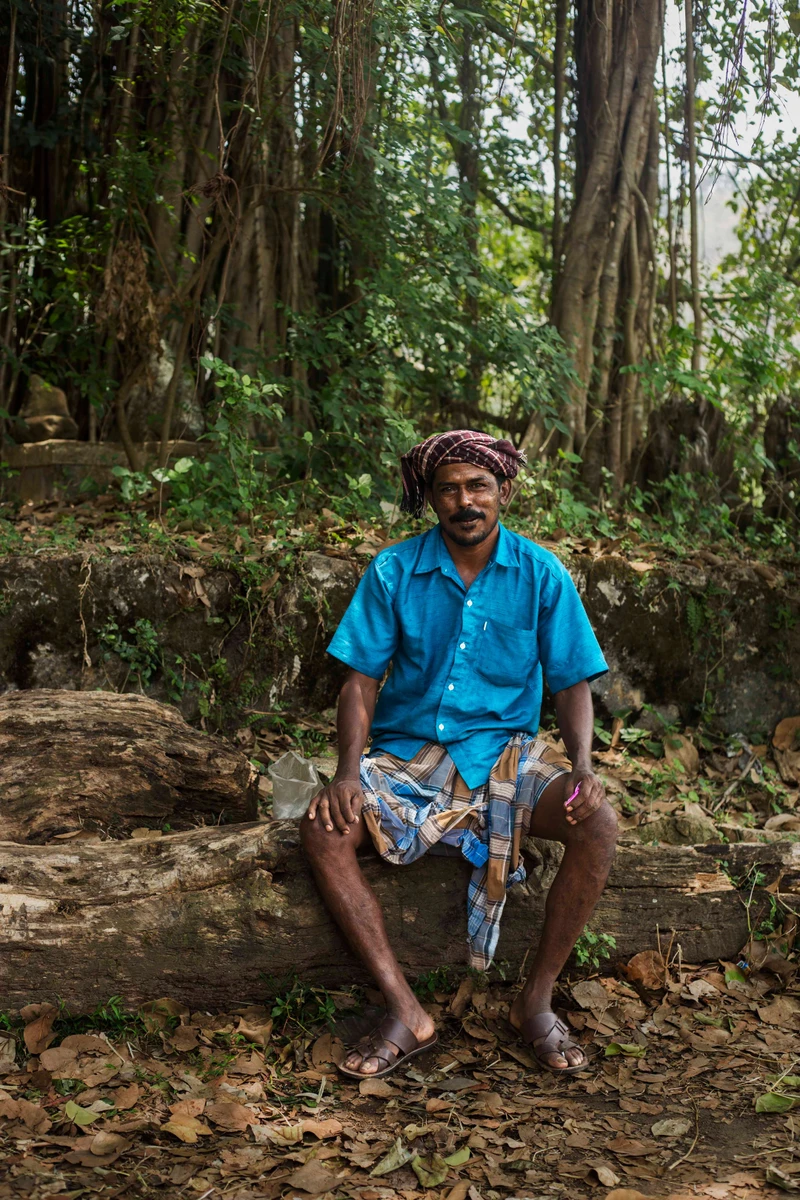
Easwaran’s parents crossed the border several years ago, and he was born and brought up in Pazhayur hamlet, in Pudur village, Kerala.
His status is "Vannavaasi" (a person who moved to Attapadi), while the native tribes of Attapadi come under the category, Aadivaasi.
Eeshwaran is a farmer and he usually cultivates in lands, that are leased out by Aadivasis. This year he cultivated tapioca in 5 acres of land.
His farming land is made all set for harvesting. But nobody is willing to offer him a price more than 5 rupees per kilogram.
So he couldn't sell his agricultural products altogether. He travels everyday to the nearby small market, with 10-20 kilograms of tapioca as some shops would give him 10 rupees per kilogram.